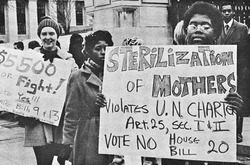
A cell at Brisbane Women’s Correctional Centre
Human Rights Watch released a report today, I Needed Help, Instead I Was Punished: Abuse and Neglect of Prisoners with Disabilities in Australia, that describes the horror of prison for those living with disabilities. Prisoners living with disabilities are tortured in every way possible, from extended and extensive use of solitary confinement to sexual violence to physical and psychological torture to … The list is endless. One prisoner spent 19 years in solitary confinement. Prison-carers provide care for prisoners with high support needs. In one prison, six of the eight prison-carers are convicted sex offenders. At the center of this garden of earthly evil are Aboriginal and Torres Strait Islanders. At the center of that center are Aboriginal and Torres Islander Strait women: “Aboriginal and Torres Strait Islander women in prison are the fastest growing prison population”. None of this is new.
HRW researchers reached women at Bandyup Women’s Prison, in West Swan, Western Australia, and Brisbane Women’s Correctional Centre, in Wacol, Brisbane, Queensland. Both are infamous for chronic overcrowding and the occasional death in custody. Today’s report largely reiterates earlier findings. The hyper-incarceration of Aboriginal and Torres Strait women is “integrally linked to the social and economic disadvantages that result from years of structural discrimination.”
Many people with disabilities that we interviewed, particularly Aboriginal and Torres Strait Islander women with disabilities, had experienced family and sexual violence multiple times in their lives. Facing sexual, physical, and verbal violence in prison, particularly from staff, perpetuates this cycle of violence and creates distrust between staff and prisoners. One woman with a disability told Human Rights Watch: “The officers [use] intimidation tactics. Especially for us girls, that just reminds us of our domestic violence back home, it scares us. If you want to get through to us, they should be nice to us.” Aboriginal and Torres Strait Islander women have high rates of psychosocial disabilities, intellectual disability, and trauma: “About 73 percent of Aboriginal and Torres Strait Islander men and 86 percent of Aboriginal and Torres Strait Islander women in prison have a diagnosed mental health condition …. Among Aboriginal and Torres Strait Islanders in Queensland prisons, 73 percent of male and 86 percent of female Aboriginal and Torres Strait Islander prisoners had a diagnosed psychosocial disability”. Aboriginal and Torres Strait women have more contact with police, generally, and the contact starts at a younger age. Aboriginal and Torres Strait Islander women with disabilities “experience higher rates of poverty, homelessness, domestic and sexual violence, and abuse than non-indigenous peers and peers without disabilities.”
“Aboriginal and Torres Strait Islander women in prison are the fastest growing prison population, and 21 times more likely to be incarcerated than non-indigenous peers.”
None of this is new. These very issues came up in major reports published in 2010, 2011, 2012, 2013, 2014, 2015, 2016, and last year. It’s a new year, and so we have another study that reports that Australia, like the United States, has invested a great deal in intensifying the vulnerability of the most vulnerable, Aboriginal and Torres Strait Islander women. The more vulnerable women become, the more they are told to shoulder responsibility, individually and as a group, for all the wrongs that have been inflicted upon them, body and soul. Women suffer repeated trauma, and it’s their fault. Prisons are cruel and ineffective, especially for women, and that’s just fine. Mass incarceration is destroying indigenous women and families, and that’s just fine. Everything is fine. Aboriginal and Torres Strait Islander women in prison are the fastest growing prison population.
(Photo Credit: ABC)
